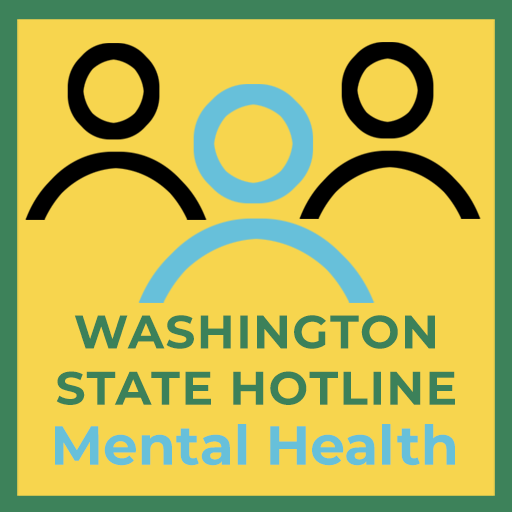Washington State
Mental Health Hotline
24/7 Confidential Help Line
Washington State Helpline for Mental Health
Welcome to the Washington Mental Health Hotline, where we provide compassionate support for your mental well-being. Our dedicated team is here to listen, offer guidance, and help you navigate the challenges you may be facing. Remember, you are not alone on this journey. Reach out to us at WA Helpline 888-991-1139, and let’s find strength together. In danger or need immediate medical attention? Call 911 Now.
Need Someone to Talk To?
We Are Here to Listen
Connect with someone who will listen and help 24/7 and help with problems like depression, stress related issues, panic attack, anxiety, or drug and alcohol use. For you or someone you care for. Specialists provide appropriate and compassionate support, crisis diversion and information and referral. This service is intended for callers who specifically request peer support or otherwise may benefit from the service.
Washington State Mental Health Hotline Offering Confidential Support
Washington State Mental Health Statistics
Mental health is a critical aspect of overall well-being, impacting various aspects of life such as learning, communication, emotional growth, resilience, and self-esteem. The state of mental health in Washington has been a growing concern, with statistics indicating a significant prevalence of mental health issues among adults and adolescents. Let’s delve into the latest data and statistics on mental health in Washington state, exploring the challenges faced by individuals and the efforts being made to promote mental well-being.

Prevalence of Mental Health Issues in Washington State
Washington state has witnessed a concerning rise in the prevalence of mental health issues among its population. According to recent surveys, approximately 1 in 8 adults in Washington report having poor mental health, with individuals experiencing symptoms of stress, depression, and emotional problems for 14 or more days in a month. This self-reported data has remained relatively stable over the years, indicating a persistent issue that needs attention.
Among adolescents, the data is even more alarming. A staggering 1 in 3 10th graders in Washington state report experiencing strongly depressive feelings, highlighting the impact on the younger population. The prevalence of depressive feelings tends to increase with higher grade levels, suggesting a need for early intervention and support for adolescents.

Feeling overwhelmed?
Speak with someone now, Call…
Disparities in Mental Health
Mental health disparities exist across various demographic groups in Washington state. Females consistently report higher prevalence of poor mental health compared to males, emphasizing the need for gender-specific support and interventions. Furthermore, young adults between the ages of 18 and 24 exhibit higher rates of poor mental health compared to older age groups, indicating the vulnerability of this particular demographic.
When examining mental health disparities among different racial and ethnic groups, American Indian or Alaskan Natives (AIAN) tend to have a higher prevalence of poor mental health compared to whites. On the other hand, Asian individuals exhibit lower rates of poor mental health compared to whites. Education and income levels also play a significant role, with individuals reporting lower levels of education and income experiencing higher rates of poor mental health.
Impact on Substance Use and Suicide
The decline in mental health in Washington state has had consequential effects on substance use and suicide rates. The increase in drug overdose deaths, primarily driven by the prevalence of fentanyl, has been a major concern. From 2019 to 2021, drug overdose death rates in Washington state rose by a staggering 50%. Similarly, suicide death rates, after a brief period of decline, have increased and remained just below the peak death rate in 2018.
These concerning trends in substance use and suicide disproportionately affect communities of color in Washington state. It is crucial to address the underlying mental health issues and provide accessible resources and support to prevent further escalation of these devastating outcomes.